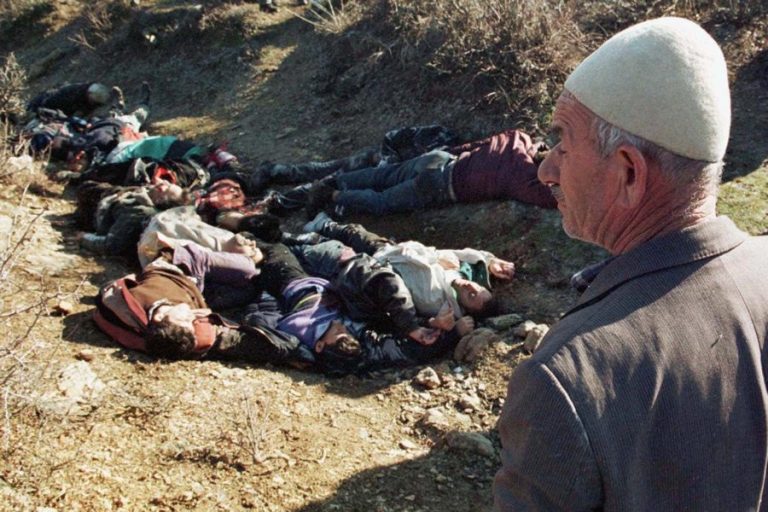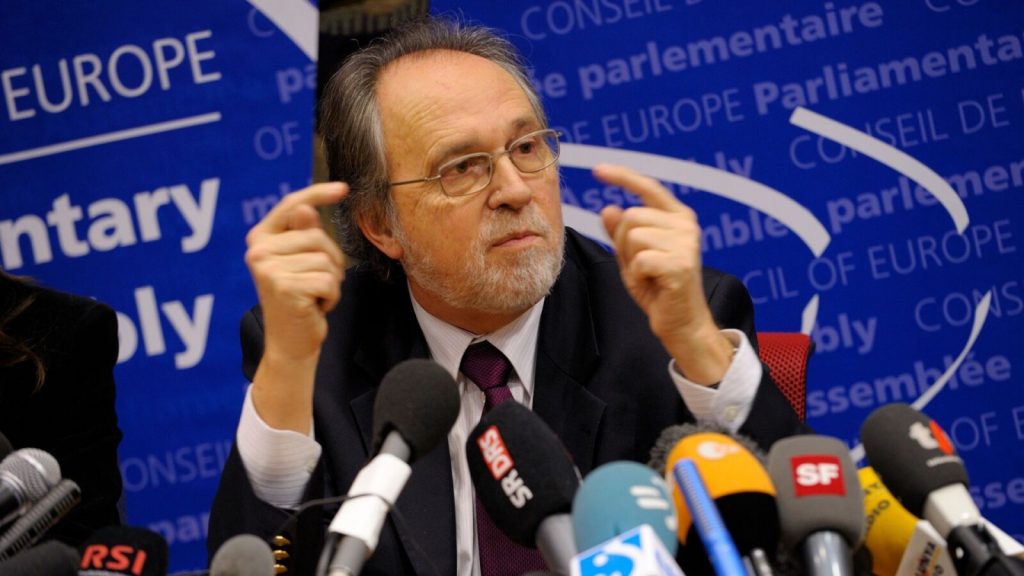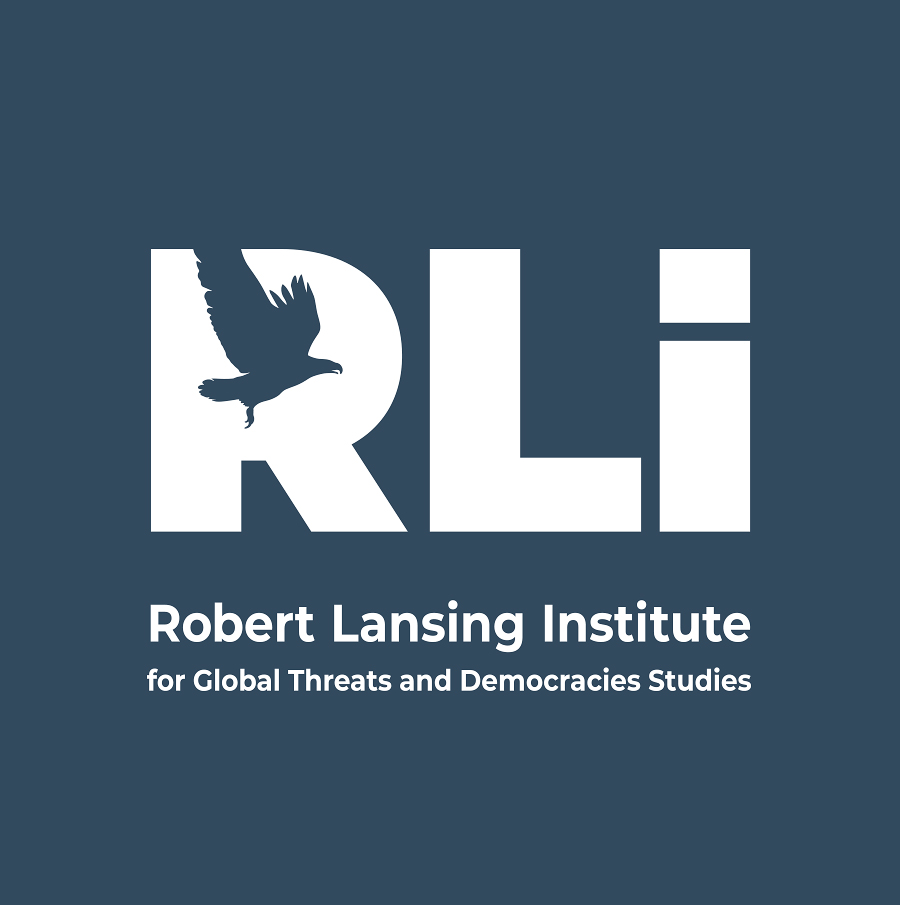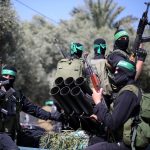Twenty-two years after the war, Kosovo announced for the second time that will prepare the case to sue Serbia for the genocide caused during the period 1998/99 in Kosovo. The Prime Minister of Kosovo, Albin Kurti, recently said that he planned during his term, to prepare the necessary documentation to sue Serbia for genocide. Such a warning was made in 2015 by the then Deputy Prime Minister of Kosovo, and the Minister of Foreign Affairs Hashim Thaçi, but there has been no other developments in this regard. This was even described as an “attempt to silence nationalist voices in Kosovo” at a time when the Special Court was expected to begin work to indict former Kosovo Liberation Army leaders and the dialogue between Kosovo and Serbia was intensified with the mediation of the EU in Brussels.
In Kosovo during 1998-1999 over 13,000 citizens of all ethnicities were killed. Mostly Albanians during the war and some Kosovo Serbs after the war. Over 1600 others are still missing to this date. Over 800,000 Kosovo citizens have been evicted from their homes and were pushed outside Kosovo, with the intention of not letting them back by confiscating their identity. The properties have been destroyed and burned for ethnic cleansing purposes. The definition of genocide includes the persecution of a population belonging to an ethnic group with the intention to exterminate a group, a ethnic group or a population. In Kosovo, it is argued that genocide was committed by Serbia, according to the definitions provided by the Genocide Convention.
But the issue of filing a lawsuit and documenting the genocide will be difficult particular that Kosovo as a state officially, has never done research on the number of victims but has been operated with statistics from foreign organizations. The number of missing, and the number of displaced, people who have been the subject of physical and sexual violence or even economic damage caused by war, is mostly documented through non-governmental organizations. Except that Kosovo has lost a lot of war evidence as a result of time. Additionally, in post-war Kosovo collected evidence was done very amateurishly not substantiating the genocide. Evidence has constructed a narrative that avoids the word “war” by replacing it with “armed conflict” or just “conflict” and sometimes also “violence” only. This narrative was created by Serbia, who has also invested in historical books to present NATO as an aggressor and the KLA war as a terrorist.
But legally does Kosovo have the right to do such a thing? Previous practices of Balkan countries against which Serbia has committed genocide have proved unsuccessful. Croatia had filed a lawsuit against Serbia in 1999, but the latter had responded with a counterclaim for displaced Serbs during this period, as a result the International Court of Justice in The Hague in 2015 had ruled that neither party committed genocide against each other.
Meanwhile, for the genocide committed in Srebrenica where about 8000 citizens were killed by the Serbian military forces, the International Court of Justice considered it genocide but only by Republika Srpska. ICJ also blamed Serbia (mildly) for not preventing the genocide but not as a direct cause of genocide. The request from B&H to review this decision in 2017, was rejected by the ICJ in The Hague.
Legally, there are other barriers that may be encountered Kosova along the way to file lawsuits against Serbia. Kosovo is not a member of the UN and consequently also not a member of the UN Convention of Genocide. Although, there are ways to sue Serbia, Kosovo has it nearly impossible to do so because to avoid UN Membership condition, Kosovo would either need to do it through a third party or have a UN Security Council decision.
But, what is important is the political battle of historic revisionism that is taking place between Kosovo and Serbia. Serbia has invested millions of dollars in further construction of this narrative, for political purposes lobbying against Kosovo’s membership in Euro-Atlantic structures. This offensive was carried out not only with legal means by publishing arrest warrants through Interpol or other judicial bodies but also in the political arena and publicly accusing former KLA leaders even though they had meetings with the latter as leaders of the two states in international circles.Serbia has been programmatically and planned for years investing in opposing Kosovo’s narrative with a special emphasis on the recent war. The massacres of Racak, Meja, Kralan, Rezalla, Abria, Izbica, Likoshan and Qirez, Rogova, and other massacres, are constantly opposed by Serbia and for them, the “truths of Serbia” are offered. An example of this is the statement of the President of Serbia on the Racak massacre, who has described this massacre as a “fabrication” by Kosova albanians and the International Community, as a pretext to attack Serbia later. All this propaganda was prepared to accuse the NATO member states in the International Court of Justice for genocide against Serbia in 1999, a lawsuit which failed in 2004.
Dick Marty’s report is also the result of a Council of Europe investigation initiated by the Russian, Serbian, Ukrainian MEP-s, etc known for their revisionist approach to Kosovo. Handcock, a European Parliament minister from England, has been pushed to apologize for lying in favor of Russia in the UK. Kosachev, also Minister in the European Parliament from Russia known as Putin’s hand, while MEP from the Communist Party of Ukraine, has been expelled from Ukraine and deprived of his citizenship for pro-Russian propaganda.
Under these circumstances, Kosovo and Serbia conflict, despite being non-violent presently, does not seem to have a bright future in the dialogue mediated by the EU or anyone else. The 22 years of investment of Serbia in falsifying crimes, NATO intervention and its crimes in Kosovo proves that.






